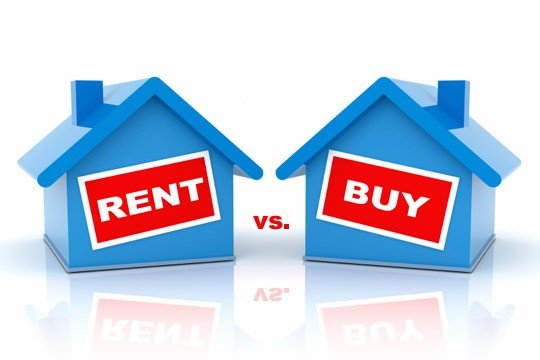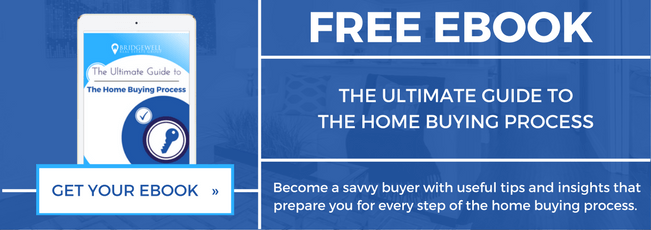Renting vs Buying
What Option is Better For You?
The argument for renting vs buying a home has been debated by many.
This blog goes through the pros of renting vs buying, and what an individual should ultimately consider when making a decision to purchase a home or continue renting.
Read this blog for the main arguments for renting vs buying and important information to help you make the best decision for your situation.
For many, buying a home has been (and in my opinion, still is) a measure of financial success. With that being said, it might not be right for everyone!
Here are the best points for renting vs buying:
Pro Renting
- No interest on mortgage payments, no property taxes
- You get a place to live
- You’re tying up your money (down payment, insurance, interest, etc.) in a single asset, rather than investing the money elsewhere
- You don’t have to pay for repairs, maintenance, or other issues that come up
- You’re looking for a short-term place to live. Renting is less of a commitment if you aren’t ready to settle down or don’t know what your long term plans/expenses are (i.e. you might move out of country, relocation, go back to school)
- If you have a lot of debt (specifically high-interest debt), then focus on paying that off first before buying a home. It doesn’t make sense to borrow more money via a mortgage and add on to the debt you already have.
- Renting may be a better fit if you can’t afford the monthly carrying costs of homeownership. Renting can be more affordable if you don’t have a lot to put down for a home to lower your monthly mortgage payment.
Pro Buying
- You’re putting money towards your future. Your monthly mortgage payments will minimize over time, and you will eventually eliminate the expense of housing once you’ve paid it off.
- When you pay off your home, it’s yours (vs renting, you’re just paying off someone else’s mortgage)
- It’s an investment, and if the home appreciates and you sell then you’ll earn a profit.
- Tax credits help offset some of the cost of homeownership. [The BC government also offers first time home buyers incentives, like a property transfer tax exemption to help you buy]
- Buying is a good option if you’re ready to commit to an area and property, and are interested in staying there for at least 2 years, preferably 5 or more. (breaking your term early can result in mortgage penalties)
- If you’re interested in owning an asset and understand the responsibilities of being a homeowner. Home ownership comes with more responsibility, and you can’t just call the landlord to fix everything for you.
Other Factors to Consider When Determine Whether Renting vs Buying is Right For You
All of the above points on renting vs buying are valid, and I considered them in my own decision too. While someone can say buying is better than renting and vice versa, it also largely depends on the individual and what their goals are. There’s a huge amount of grey area, which I would consider to be individual or circumstantial factors, which support the idea that it doesn’t make sense to assert either decision as a “best” decision.
The main points that we recommend everyone to consider in the renting vs buying debate are the following:
How long you’ll live in the home
If you’re ready to commit to an area and place for the length of the mortgage term, then buying may be something to consider. (i.e. 2, 3 or 5 years)
The opportunity cost of your down payment, taxes & insurance
You’ll have to weigh whether the return on investment (ROI) for your money is better in the housing market or elsewhere. In Vancouver, the housing market has shown one of the highest ROI’s over time and would be a better place to plant your money than a GIC or RRSP at your bank. It largely depends on the market your in and how experienced you are with your funds (i.e. maybe you’re well-versed in stock market and can make money there!)
The cost of buying vs renting
If the cost of renting is similar or higher than a mortgage payment, then at least your monthly payments would be going to paying off your mortgage rather than someone else’s when buying. If the cost of renting is significantly less, then having the more affordable option may be better for you at this time.
If you have the ability to buy (i.e. down payment funds)
Buying requires a sizeable down payment, where renting does not. If you don’t have the funds now but want to buy in the future, then try to save money on the side every month until you can afford a minimum down!
Can you buy?
- Lenders will want to see your credit history. A mortgage broker will pull your credit report, and you may not be able to qualify for the A lender if your score is below 600. Make sure you work on making all your payments on time, and ask a broker how to improve your score if you know that it’s low. Planning is key!
- They should have confidence that they will have a stable pay cheque for years. It’s your responsibility to make mortgage payments on time and in full, you’ll want to avoid foreclosure at all costs.
- To purchase a home, you’ll need to have liquid funds ready for a down payment. The minimum amount of down payment that you will need to purchase a condo in British Columbia (BC) depends on the purchase price of the property. The breakdowns for each price category is as follows:
Minimum Down Payment Rules BC
For homes with a purchase price equal to or less than $500,000:
The minimum down payment is 5%.
For homes with a purchase price greater than $500,000 and less than $1,000,000:
The minimum down payment is 5% for the first $500,000, and 10% on the remaining balance (portion of the price above $500,00)
For homes with a purchase price equal to or greater than $1,000,000:
The minimum down payment is 20% on the total purchase price
If you are purchasing the property as an investment property:
The minimum down payment for investment properties is 20%, regardless of the purchase price amount
An example of minimum down payment on a condo
Example 1:
Purchase price: $480,000
Minimum down payment calculation: 5% of $480,000
Minimum down payment total: $24,000
Example 2:
Purchase price: $700,000
Minimum down payment calculation: 5% of $500,000, 10% of $200,000
Minimum down payment total: $45,000
—
If you’re looking to hire a realtor with experience to help guide you through the process of buying a home, then reach out to us today at [email protected] or 604-319-2020 for realtor representation!




